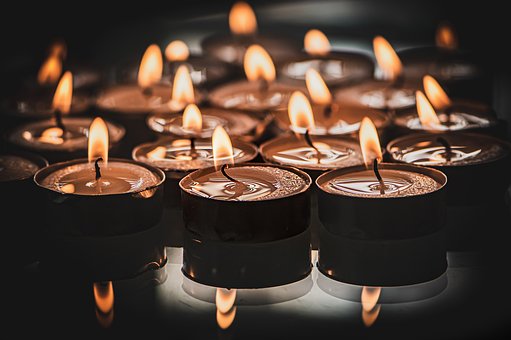Let’s play – Bulletin of the Society of Readers of Léon-Paul Fargue
n° 22, autumn 2023
Folder “Fargue and Philosophy”
Call for papers
Numbers of Let’s play — the bulletin of the Society of Readers of Léon-Paul Fargue — have, in the past, dealt with the relations of the poet to other arts: Fargue in music (n° 8), Fargue “pedestrian of the Arts” (n° 11). Another recalls his relations with the press and the media: Fargue and the media (#17). The next Let’s play will examine the poet and his work in the light of the human science par excellence, Philosophy. It will be Let’s play No. 22 which, in fact, will bear the title: Fargue and philosophy.
On the one hand Fargue declares: “I am neither a philosopher, nor a theologian, nor a partisan” (high loneliness). On the other hand, the names of philosophers abound in his texts: Taine, [Herbert] Spencer, William James and Bergson (high loneliness), Descartes, Hegel, Spinoza, Valery and Nietzsche (Familiar sequel), Renan and Schopenhauer (Meanders). Followed by thinkers from antiquity: Plotinus, Porphyry and Iamblichus (Vulturn). Marc-Aurele (Meanders) and Saint-Denys the Areopagite (Familiar sequel). To which would also be added religious thinkers or eminent people of the Church: Pascal (Meanders), Juan de los Angeles (Vulturn) and Cardinal Lavigerie (Familiar sequel). This list is not exhaustive.
At least three axes could guide our reflection.
1° Training and creation – Did Fargue read these thinkers? Has he looked into monographs concerning them? What is his training in Philosophy? Is it only related to studies, or is Fargue self-taught? The enumeration of these names of thinkers is not at all, for him, a frivolous or gratuitous exercise. We should seek to know if it is possible to confront the thought of such a philosopher with the content of certain texts of the poet (influence of philosophy on creation, intertextuality, direct or indirect borrowings, nature and role of quotations). Did his relationships with the other Arts (Painting and Music) allow him to develop an Aesthetics?
2° A thinker of Time/of his time? According to a second axis, we could consider the various literary genres that the poet prefers: the chronicle, the flânerie, the portraits… Such relatively brief texts sharpen Fargue’s perception of the time, his contemporaries, the atmosphere of such neighborhood. This writing does not take long to embrace the universal: “The café terrace replaces all open-air theaters […] It is the very terrace of life” (Poisons). These genres do not limit Fargue whose thought is often wandering, wandering from images to impressions, but attentive to the formula, the maxim, the aphorism. Moreover let us not forget that, although haunted by Time, Fargue seems to remain an ahistorical author. Our task is to record the sparkling talks of Fargue, to note the diversity of the subjects broached and to mark the contours of his assertions: Fargue and time, Fargue in his time? Does Fargue have a political thought? Sociological? Does a thought emerge from the art of the chronicle? How can a poem think? is laughter a philosophy?
3° physics and metaphysics – Another possible common thread will be metaphysics. The socio-political tensions of the 1930s can be seen clearly in Fargue’s writings, for example, in the use of mediums. Then comes the attraction of other religions. “Order is Buddha, it’s Mahomet” says Fargue (high loneliness), jokes addressed to René Daumal, René Guénon (and others). The devil manifests himself everywhere high loneliness, creating the beginnings of a drama with Baudelairian resonances. Fargue pursues a spiritual quest as indicated by the use of terms such as “transubstantiation”, “resurrected” and “reintegrated”. If this lexicon is mixed with “metempsychosis”, which derives from heterodox beliefs, this shows the great freedom shown by the poet. Is lyricism one of the voices/ways of a spiritual questioning, of a metaphysical concern? Metaphysics, in its relationship to Physics, also suggests a Farguian “system of Nature”, a theory of Space, a particular relationship to Science and knowledge, an epistemology…
Standards and schedule
Contributions may range from 2,000 to 35,000 characters including spaces and notes (formatting instructions will be provided to contributors).
Images are always welcome to illustrate the comments.
The form and tone of the contributions are free. The abstruse or pedantic developments are not generally appreciated by readers of Fargue, but that does not prevent the seriousness, the spirit of analysis, the erudition, the mastery of an argument. The reader of Fargue also savors humor and fantasy. The editorial committee will be able to dialogue with the authors, provide them with materials, suggest avenues if necessary.
The proposals will be limited to one page and will be accompanied by a brief bio-bibliographical presentation of the author.
They must reach us before February 10, 2023.
The proposals will be validated by the end of February 2023 at the latest.
The texts will be submitted for the June 15, 2023.
Publication is scheduled for early October 2023.
Mail to send jointly to the four case coordinators:
Barbara Pascarel: ludionette@gmail.com
Richard Spiteri: richard.spiteri@um.edu.mt
Pierre Loubier: pierre.loubier@univ-poitiers.fr
Julien Gabet: guilhem.gabet@gmail.com

